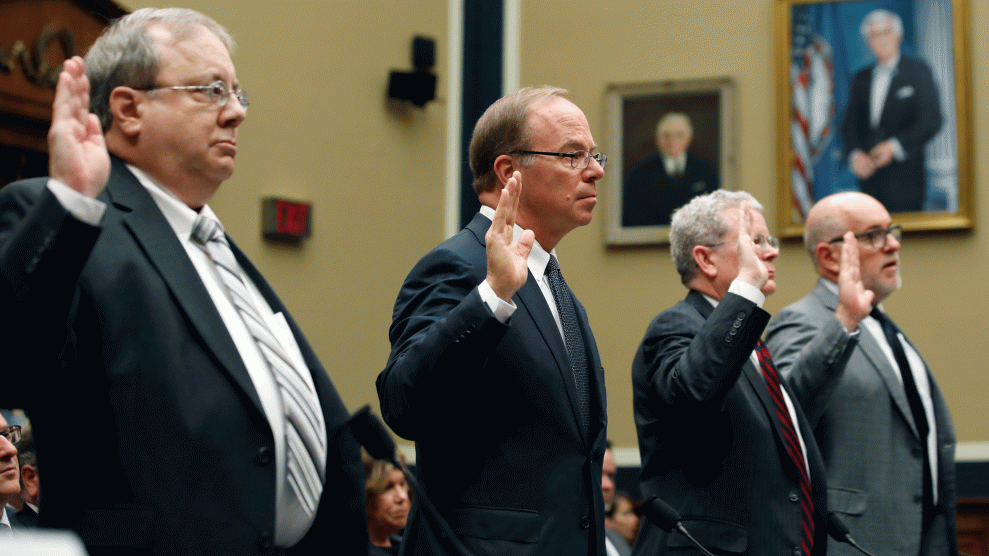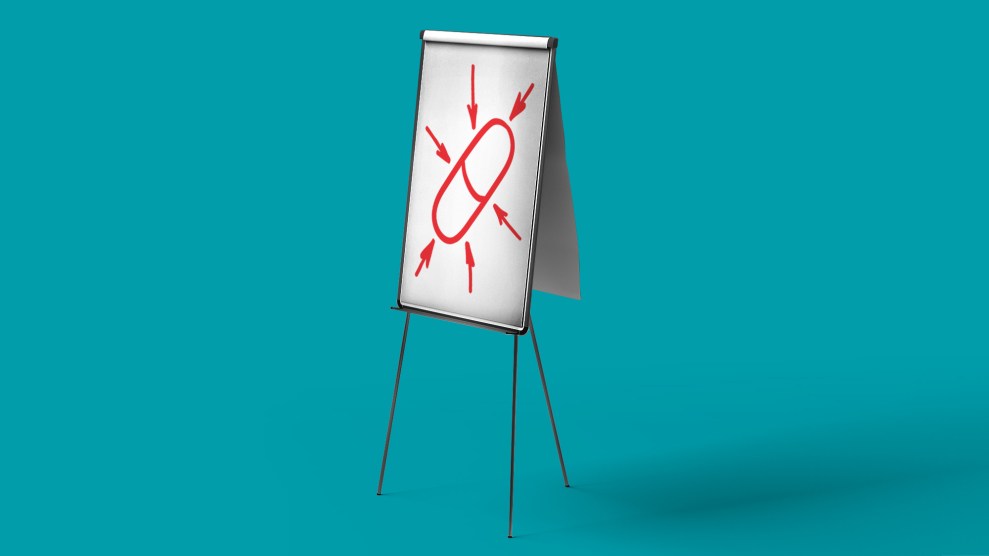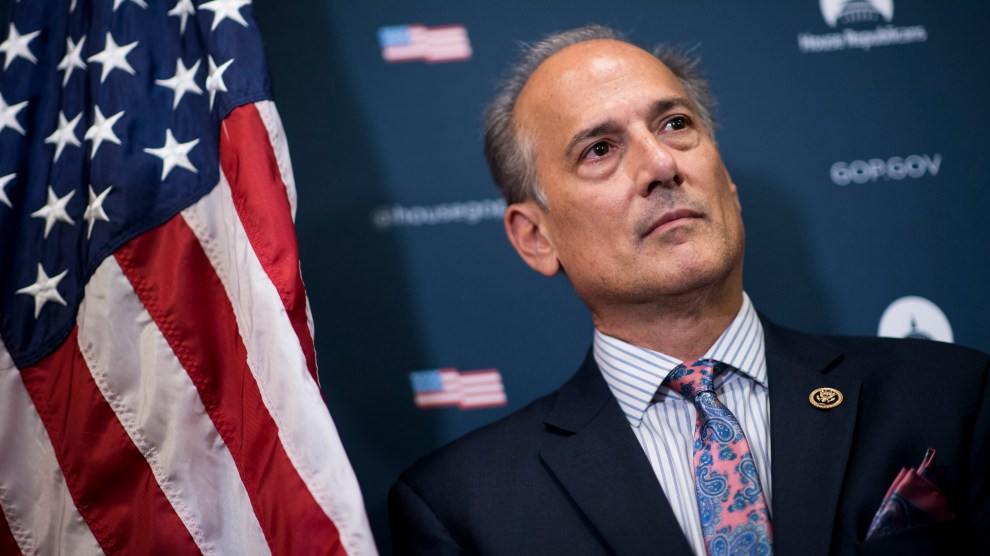
Executives from top pharmaceutical distributors are sworn in before testifying at a Committee on Energy and Commerce hearing about the opioid epidemic.Alex Brandon/AP
On Tuesday, a House panel grilled executives from the nation’s top drug distributors for failing to report suspiciously large painkiller orders over the past decade to a handful of pharmacies in West Virginia. The House Energy and Commerce Committee, which is investigating so-called “pill dumping,” contends that the distributors helped fuel the state’s debilitating overdose epidemic with their inaction.
Drug distributors are responsible for disseminating medications to pharmacies across the country and are required under federal law to report abnormally large or frequent orders of narcotics to the Drug Enforcement Administration. But the lawmakers cited, with alarm, multiple instances in West Virginia in which the major distributors failed to report orders to the DEA. In Kermit, a town of less than 400 people, a single pharmacy received nearly nine million hydrocodone pills over two years. Over a ten-year period, drug companies shipped nearly 21 million painkillers to two pharmacies in Williamson, West Virginia, earning the town of roughly 3,000 the nickname “Pilliamson.”
Among the executives were heads of the “Big Three” distributors—McKesson, Cardinal Health, and AmerisourceBergen—which are all in the top 15 on the Forbes 500 list and make up 85 percent of the nation’s drug distribution. Tuesday’s hearing is not the first time the distributors were on the hot seat for pill-dumping: The House investigation comes after the companies have paid several multi-million dollar settlements, between 2008 and 2017, for failing to report suspicious purchases of controlled substances. They are also listed as defendants in the historic multi-district opioid litigation that recently began in Ohio.
At the House hearing, some of the executives expressed remorse for their lack of action, noting that the systems in place to flag the orders were not adequate, and explained that better tracking has since been put in place. “With the benefit of hindsight, I wish we had moved faster and asked a different set of questions,” said Cardinal Health chairman George Barrett. “I am deeply sorry we did not.”
But overall, the executives largely deflected blame onto doctors, pharmacists, and the Drug Enforcement Administration. Asked if their companies contributed to the opioid crisis, only one of the five executives—Joseph Mastandrea, head of distributor Miami-Luken—said yes.
Some of the most heated exchanges came when Reps. Kathy Castor (D-Fla.) and Morgan Griffith (R-Va.) came down on McKesson CEO John Hammergren. McKesson settled for $13 million in 2008 to resolve allegations that the company had failed to report suspicious orders of narcotics. Yet, according to the lawmakers, the company still failed to report such orders in the years that followed, leading the company to pay a record $150 million fine in 2017.
“The serious lack of suspicious order reporting does not show a high level of engagement by McKesson, does it?” asked Rep. Griffith. “Yes or no?”
“We took our responsibilities very seriously,” said Hammergren.
“Yes or no?” Griffith pressed. “Failing to live up to the 2008 agreement does not show a high level of commitment, does it?”
“Thats not true,” replied Hammergren. “We had a high level of commitment, Congressman.”
“And you failed,” snapped Griffith.
When it was Castor’s turn, she pointed out that Hammergren made over $692 million from 2007 to 2017. “You saw paying the penalties on the settlement agreements was a cost worth paying because you were making so much money?” Castor asked.
“Any settlement with a regulator, we take very seriously,” Hammergren assured her.
“I think this was the opposite of due diligence,” countered Castor.
The seeming lack of willingness to take responsibility visibly exasperated some lawmakers.
“For several of you to say you had no role whatsoever in this, I find particularly offensive,” said Rep. David B. McKinley (R-W. Va.). “The fury inside me right now is bubbling over.”
Update, 2 pm, May 9: Healthcare Distribution Alliance, the trade association representing pharmaceutical distributors, responded to the allegations in an email to Mother Jones. “Distributors understand the tragic impact the prescription opioid abuse epidemic has had on our country,” said CEO John Gray. “But we need to be realistic and acknowledge that this epidemic was not caused by distributors who neither prescribe, manufacture, nor dispense medicines…Distributors have invested heavily in more sophisticated monitoring tools, and we support aggressive policy measures to reduce over-prescribing of opioids. Today, we are focused on what we can do to advance meaningful policy changes that will prevent opioid abuse and misuse before it occurs.”













